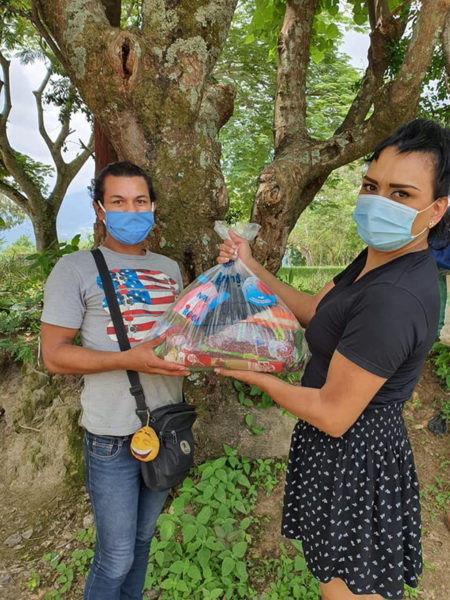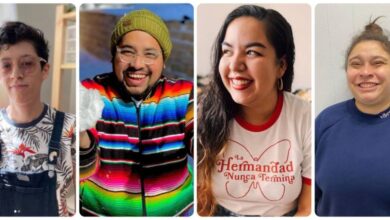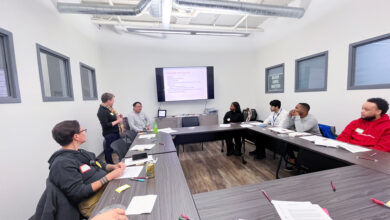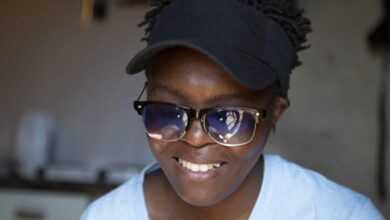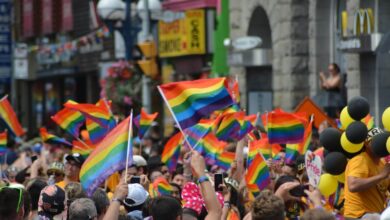Coronavirus lockdown leaves LGBTQ Salvadorans even more vulnerable
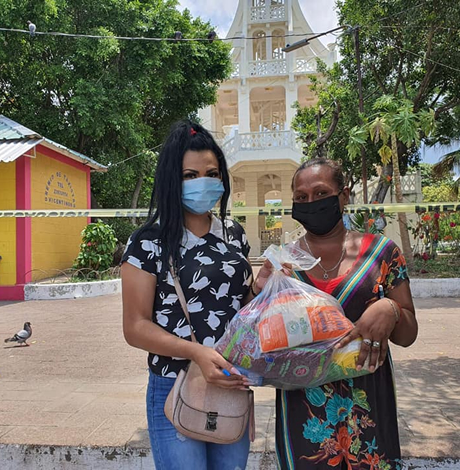
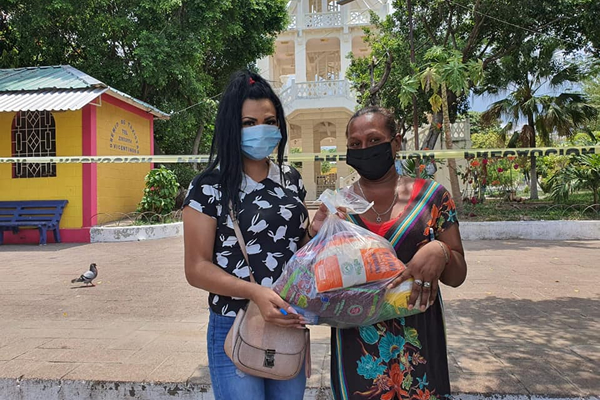
Editor’s note: The Washington Blade published a Spanish version of this article on June 16.
SAN SALVADOR, El Salvador — In the months since the coronavirus pandemic began in China, it has affected the whole world and El Salvador is no exception. Apart from not acquiring this virus and taking necessary sanitation measures, there are also concerns over the violation of human rights and the lack of support for the most vulnerable people who have been affected by the country’s mandatory lockdown.
One of the vulnerable groups that has been affected has been
the LGBTQ community.
El Salvador since March 11 has been under a mandatory national lockdown that has, among other things, closed down the country’s businesses and face-to-face academic life. The situation has already had a significant impact on the Salvadoran economy.
“At the beginning, the situation in the country was handled correctly, such as the decision to close the airport in a timely manner; but there was poor planning,” Karla Guevara, a lawyer who is executive director of Colectivo Alejandría, told the Blade.
Guevara adds quarantine centers became “the epicenter
of the pandemic” in El Salvador because they were “poorly …
managed.” They have also been accused of violating the human rights of
those who have been sent to them.
One such case involves a transgender man whose gender identity
was not respected.
The El Salvador Transgender Men Organization (HT El
Salvador) told the Blade a trans man returned from Guatemala on March 13, the
day the country’s state of emergency took effect. Authorities detained him and
temporarily sent him to a quarantine center in Usulután Department.
“He spent a few days in that place with other LGBTI
people who had arrived in the country,” an HT El Salvador representative
told the Blade. “At no time was trans people’s gender identity
respected.”
The trans man was then transferred to another quarantine
center in Chalatenango Department, which did not have adequate conditions.
People who were housed there were not healthy and were not given food.
“HT El Salvador later brought food and personal hygiene kits
to this man that could also be distributed to more trans people isolated
there,” said HT El Salvador.
The organization does not know whether the kits were
distributed to trans people, which led them to file complaints with El
Salvador’s human rights ombudsman’s office. The conditions subsequently
improved for the trans man and others isolated in the quarantine center.
“It was a clear violation of human rights for those people who allegedly violated the lockdown to be in quarantine centers,” Erick Ortiz, an openly gay National Assembly candidate for the Nuestro Tiempo party, told the Blade. “It was more complex for the LGBTI community, since there were no protocols in those quarantine centers that guaranteed an environment free of discrimination and violence; and there were unfortunately cases of discrimination and violence against gay men, lesbian women and trans people within these quarantine centers.”
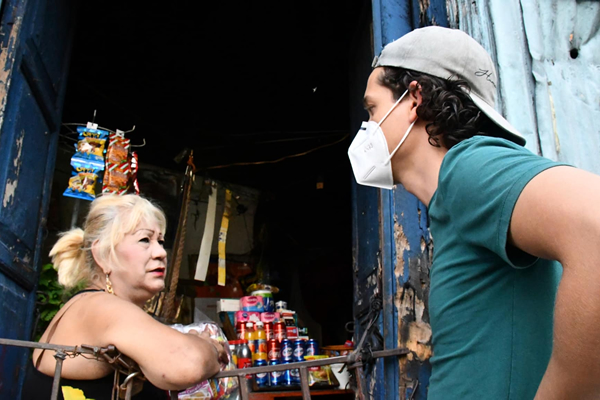
While everyone was finding a way to survive the mandatory
lockdown, Tropical Storm Amanda struck El Salvador in the early hours of May
31. It hit hard and affected the country’s most vulnerable areas.
Jessica Nahomy Gómez, a trans sex worker, is one of the
LGBTQ people who has been affected by the heavy rains.
“My house came down because a wall next to my house
collapsed; it fell on top of it,” she told the Blade.
“I have not received help either from the government
nor from the municipality where I had my house. My mother, who is in very poor
health, depends on me,” said Gómez, speaking about her current situation. “The
only ones who have helped me with a little food have been the Trans Feminist
Association of El Salvador and Aspidh Arcoíris Trans. I have felt good with
that help. It is not a large amount, but I am very grateful to them.”
Help during the pandemic
The Salvadoran government’s lack of planning to meet the
needs of the population under mandatory lockdown has been questioned. Civil
society organizations themselves even admit they were not prepared, but it has
not stopped them from trying to help.
“There are LGBTI people who, in the face of all this, have gone
hungry,” Roberto Zapata, general secretary of Asociación AMATE El
Salvador, told the Blade. “We, as LGBTI organizations and community, have
tried, to the extent that we are able, to bring support in solidarity to people
we have met who are in need. We do this to be able to cover a little of what
the government is not doing.”
“None of the civil society organizations are prepared for
this situation,” Aspidh Arcoíris Trans Director Mónica Linares told the
Blade, noting the Salvadoran government, like others around the world were also
not prepared for the impact the lockdowns would have.
“We have tried to deliver a basket of food to LGBTI people in need with the help of donors and individuals,” she noted.
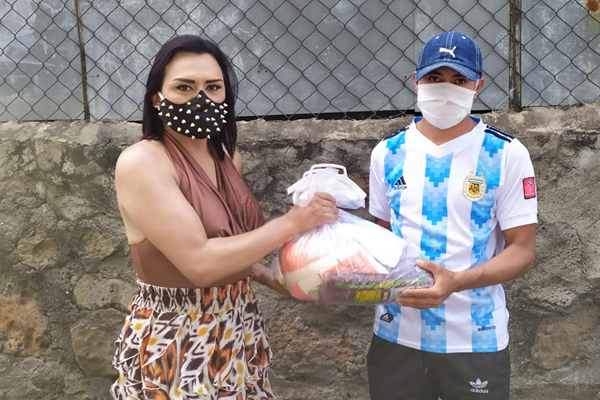
Advocacy groups try to fill aid gaps
The LGBTQ community — and especially trans people who are
most likely not to be able to find a job — have suffered disproportionately
during the lockdown
“Trans women who are sex workers have already not been able
to work for more than 80 days, like LGBTI people who work in informal
jobs,” Guevara told the Blade. “Around 40 percent of the LGTBI
community has a stable job, while the other 60 percent run their own business,
work in informal commerce or sex work.”
“We have been in social confinement for three
months,” said Ortiz. “We are experiencing an induced economic coma. This
has left part of the LGBTI community that also suffers the scourge of poverty
in a very serious state of vulnerability.”
As previously mentioned, the portion of this population who
engages in sex work have been hard hit by the lockdown. It will also be more
affected not only because of the time out of work, but because of the
precautions they will have to take to protect themselves against COVID-19 once
they return to their activities in their entirety.
“I do sex work and when I can I also work in informal sales,
but now that I have come to the capital of San Salvador, the place where I am
staying has a sanitary code,” Gómez told the Blade. “You are always
harassed by the authorities when you want to go outside.”
“I had to go to a hotel after I lost my house,”
she said. “Sometimes I wash and iron the clothes of people who know me and
so I earn about $5 or $3 a day.”
Before the pandemic it was already difficult to receive
adequate payment for sex-related services. Gómez said no one will want to pay
for sex work after the lockdown ends because the Salvadoran economy will be bad
and new sanitary measures will have to be implemented.
“I have not received any help from the mayor of La
Libertad, which is where I am from, nor food, material or something that I can
use to fix my home,” she said.
A lack of support for LGBTQ entrepreneurs has forced them to
take matters into their own hands during the pandemic. This is the case with
Weirdo Sportwear, a brand of sportswear.
“As a small business, we had already planned out our
first months of 2020, but we never thought of having a contingency plan for our
business’ continuity,” said Eugenia Folgar, the brand’s founder.
“We took on the task of adapting to our new needs and
developing a minimally viable product that would meet that need,” added
Folgar.
“Today we make textile face coverings with our fabrics. We
managed to reinvent ourselves,” Folgar told the Blade. “We hope that
in these tough times the government will encourage support for new ventures,
and for existing medium and small businesses to gain access to financing in
these times of crisis.”
Branches of
government at odds over COVID-19 recovery
In the midst of the crises that affect the country, the various
branches of the Salvadoran government are unable to agree on measures or
protocols that will help the population after the lockdown ends and economic
activity resumes. The Executive and Legislative Branches continue to battle
each other.
“The handling of the crisis at the Executive level has
been regrettable, as it has maintained a confrontational presidential tone towards
the rest of State entities,” Ortiz told the Blade.
“It is worrying because in the midst of a health crisis
and an economic and social crisis that is unprecedented in the country, we also
have a serious political crisis that is putting at risk the democratic advances
that El Salvador has made in the years after the war,” he added.
“We as organizations are alarmed to see how the
Executive has deepened its anti-human rights discourse, using its social
networks and those of its officials to attack organizations that defend human
rights,” says Zapata. “The government has cynically ignored, has blatantly
and continuously ignored the resolutions of the constitutional chamber (of the
El Salvador Supreme Court) and all apparently due to a stated electoral
policy.”
Linares, on a personal note, believes the government has
carried out COVID-19 prevention efforts to prevent an increase in the number of
cases and deaths in the country.
“it will be regrettable that when the lockdown is
lifted, the cases will increase and the LGBTI population will be affected,”
she said.
“The health centers are already full,” argued Linares. “Let’s hope that this situation does not get worse and that the powers of the State can reach a consensus for the good of the general population, including us as members of the LGBTI community.”
U.N. High Commissioner for Human Rights Michelle Bachelet on
April 21 expressed concern about possible human rights violations in El
Salvador committed in compliance with measures imposed to stop the pandemic.
“I call on the authorities to investigate all the
alleged human rights violations in the context of the implementation of the
measures to fight against COVID-19,” said Bachelet in a statement.
The El Salvador Supreme Court’s constitutional chamber has
taken this concern into account, as well as the many unconstitutional processes
that have been presented to them as a result of the Temporary Restriction of
Concrete Constitutional Rights Law to Address the COVID-19 Pandemic, contained
in Legislative Decree 594, which was approved on March 14 and published in the
Official Gazette the following day.
“All rights are complimentary, so therefore all laws
and all decrees that come from the Legislative and Executive (branches) must be
for the sake of respecting human rights, and the constitutional chamber has
already said this repeatedly to the Executive and Legislative (branches),”
Guevara told the Blade. “They must sit down to work out a law or a decree
that respects all of the people’s rights that are enshrined in the
Constitution.”
Guevara applauded the Judiciary’s work because at least it
has been worried about all Salvadorans’ health and well-being. She said the
problem has originated from the Legislative and Executive branches.
Government statistics as of deadline indicate there have
been 3,720 confirmed coronavirus cases, with 1,843 of them recovered. The
Salvadoran government also notes 74 people have died from the virus.
Due to the failure to reach an agreement between the
Executive and Legislative branches, the country’s government opted to issue
Executive Decree 31 that includes health protocols to guarantee people’s rights
to health and life in the process to gradually reopen the economy.
The economy’s reopening was divided into five phases, which
began on June 16. The reopening is expected to be completed on Aug. 31.
